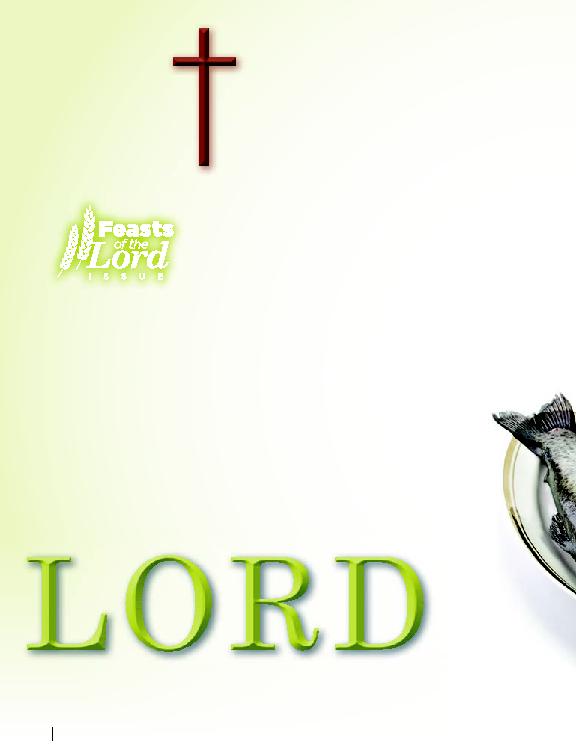
Jewish religious feasts are by definition sacred observances accompanied by
demonstrations of joy and gladness. The feasts commanded by God are most
fully defined in Leviticus 23 where they are called "holy convocations." Except
for festivals established by the Jewish people after the exile, such as Chanukah
and Purim, times for the seven sacred feasts were fixed by divine appointment.
During these holy convocations the people met before God to celebrate and to
teach essential spiritual and historic truths.
After the Tabernacle was constructed during the Exodus, God instructed the
Children of Israel on the subject of holy living. These instructions are compiled
in the book of Leviticus with the paramount divine imperative � "I am the Lord
who brought you up out of Egypt to be your God; therefore be holy, because
I am holy"
(Lev. 11:45). The book of Leviticus contains explicit instructions
for offering sacrifices, resolving daily problems, instructions on cleanliness
and observing Israel's special holidays -- the Feasts of the Lord.
Before the destruction of the Second Temple in 70 A.D., the
orthodox Jew had to comply with each meticulous detail of
Leviticus 23. There could be no error in commemorating the
feasts. One mistake in the celebration of the Day of Atonement,
for example, would result in banishment from the nation!
Leviticus 23 is one of the most fascinating and instructive
chapters in the Bible. In a brief 44 verses, Jehovah introduces
the seven annual
sacred feasts of the
Lord. At first reading
it appears to be a simple
list of Israel's major
holidays. But further
study of the entire
Bible places this
portion in perspective.
This chapter is more
than a list of holidays
--it is the centerpiece
of Israel's holy days.
This sacred calendar is also precious to Christians � to those who "have
found the one Moses wrote about in the Law, and about whom the prophets also
wrote � Jesus of Nazareth..."
(John 1:45). When we find Him, we discover that
the Old Testament and the New Testament are not two books --They are a
12
The War Cry | NOVEMBER 2014
Feasts
of the
by COMMISSIONER
WILLIAM W. FRANCIS
he great truths of Scripture are annually celebrated and
taught through seven feasts established by God and
recorded in Leviticus 23 and 25.
Some mistakenly consider
the feasts to be little more than ethno-religious celebrations
of inconsequential meaning for the follower of Christ. To the
contrary, these sacred festivals provide a fascinating link to
Christianity's historic and spiritual roots in Judaism.
